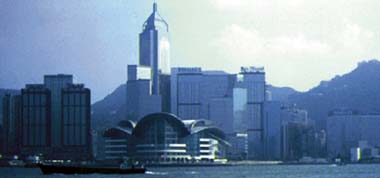|
|
By Kyle Hung
It was expected that the handover on 1 July would bring Hong Kong more tourists. However, visitor arrivals in July dropped 35.2 percent compared to the same period last year.
The Japanese used to be the ones spending the most money in Hong Kong. However, Japanese visitors in June 1997 decreased by 48 percent compared to the same period last year.
According to Visitor Arrival Statistics, June 1997, published by the Research Department of the Hong Kong Tourist Association, the hotel room occupancy rate of all categories of hotels in June this year was only 70 percent, compared with 87 percent last year.
The above figures shocked the tourism industry. But the statistics do not mean that the industry has not done anything about the situation.
The Hong Kong Tourist Association has launched a major tourism promotion programme known as “100 Days Of Wonders”.
The programme includes events like special festivals, carnivals, exhibitions, conferences and fireworks displays.
Besides HKTA, Cathay Pacific made contributions as well.
In July, Cathay Pacific gave away 500 free tickets to Japanese tourists to come to Hong Kong.
After the handover, the company invited about 2,000 reporters and representatives of travel agents from the company’s major markets such as Australia, the UK, Japan and the U.S.
Ms Katherine Wang, the corporate communications manager of Cathay Pacific, explained the policy as a way to let the world know what is going on in Hong Kong.
Although some parties have tried their best to change the situation, there are still some disadvantageous factors driving the tourists away.
Mr. Vincent Lee, manager of a snack bar in the Peak Tower, said, “Foreigners misunderstood that the People’s Liberation Army would march all over the Territory. Therefore, tourists delayed their trips to Hong Kong during the handover.”
The devaluation of many Southeast Asian currencies also reduced Hong Kong’s competitive power as a “shopping paradise”.
According to an article in the Apple Daily, the main reasons for the drastic drop in the number of tourists are that the tourism industry overestimated the attraction of handover, and the Beijing government’s late announcement on returnees restrictions.
Moreover, people in regions like Japan and Taiwan were told to go to Hong Kong before the handover. This boosted the industry last year, but deflated it to the bottom after this July.
The dropping number of visitors affects the livelihood of the people who work in service businesses in Hong Kong.
The owner of a tailor shop in the Hyatt Regency Hong Kong said almost all his customers are foreigners. He revealed that the sales figures for his profession have dropped by an average of 50 percent.
On the other hand, in the eyes of some foreign travellers, Hong Kong is still a desirable place to go.
Peter and Sylvia Jackson are visitors from Britain. The couple said that Hong Kong people are very friendly and helpful, and that Hong Kong is really a safe place compared to England.
Mr. Craig Eckharolt, an American businessman, has visited Hong Kong four times. He said that Hong Kong is still an energetic city with excellent services and communication facilities. Its vitality is a big advantage for tourism.
Certainly, the industry must be pleased with these positive assessments.
The Tourist Association is now suggesting a world exhibition in 2001. The SAR Government is also being urged to do something to remedy the situation.
| |


 Money
Money
 'Can you help?'
'Can you help?'